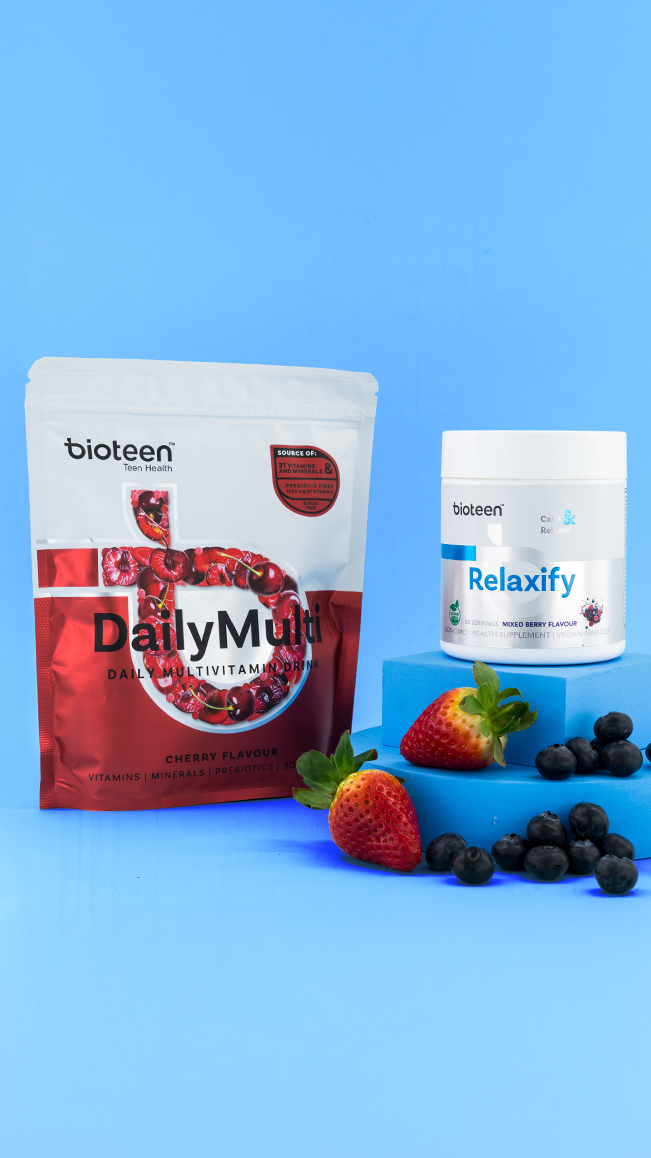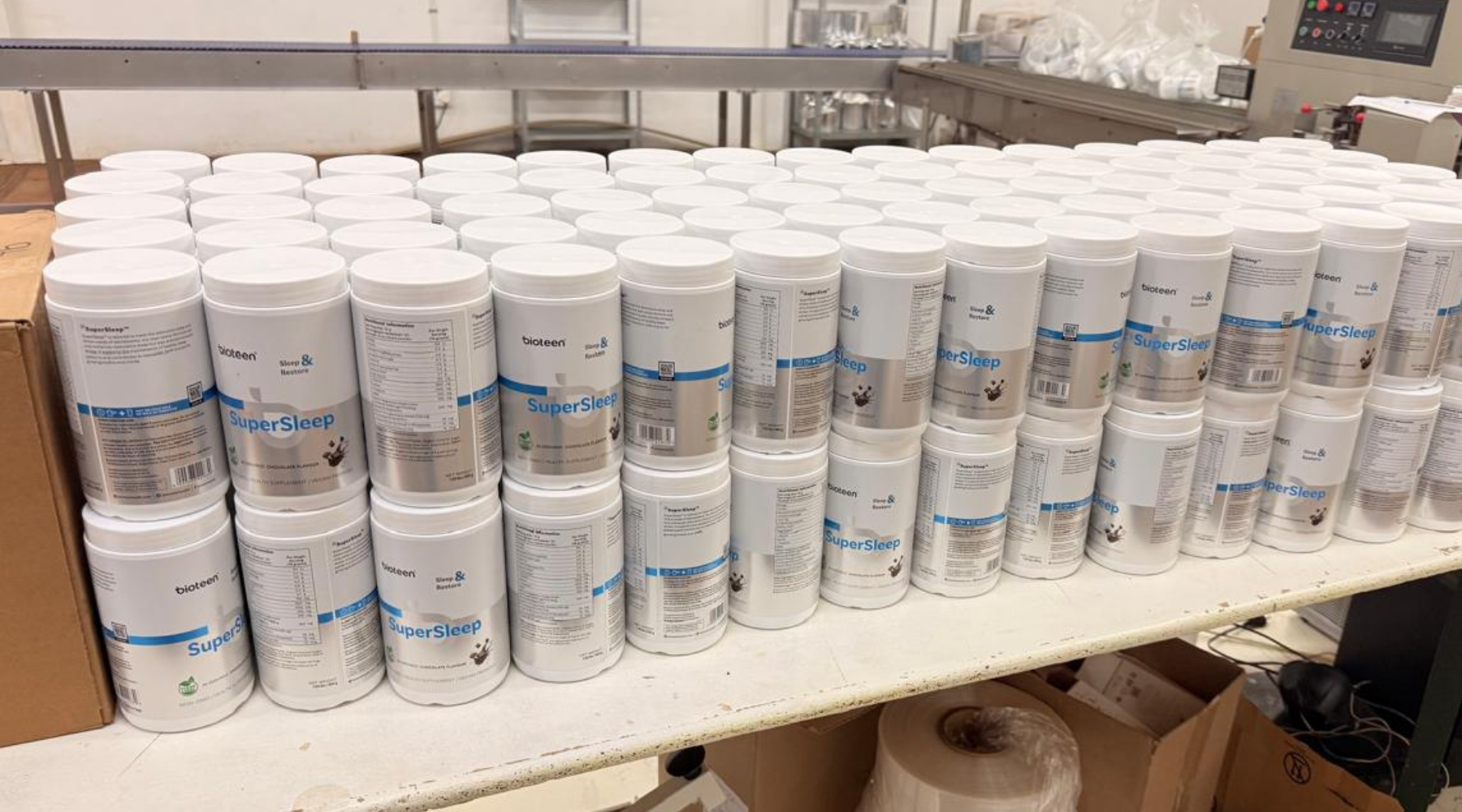
Understanding Teen Stress: What it looks like, why it matters, and how parents can help
When your child seems moody, distracted, or “not themselves,” it’s easy to assume it’s just hormones, but what if it’s actually stress?
Behind slammed doors, sleepless nights, and study fatigue, your child’s nervous system might be sending quiet SOS signals. Because between schoolwork, social pressure and screens that never switch off, the modern teen brain rarely gets a break.
Recent studies show rising stress and anxiety among adolescents, with many struggling to focus, sleep, and regulate emotions. Yet for parents, these signs often look like laziness or moodiness.
The truth? Teen stress looks different and if left unchecked, it can quietly affect mental, emotional, and physical health for years to come.
Recognising What Stress Looks Like in Teens
Stress doesn’t always show up as panic or tears. It often hides behind everyday behavior.
Common signs include:
-
Irritability, anger, or emotional outbursts
-
Trouble concentrating or “zoning out”
-
Changes in eating or sleeping habits
-
Frequent headaches or stomach aches
-
Withdrawal from friends or hobbies
-
Forgetfulness or loss of motivation
These may look like “typical teen behavior,” but they can also signal that the nervous system is overloaded. When the brain feels under constant pressure, cortisol and adrenaline stay high and the body never gets the chance to rest.
Why Chronic Stress Is So Harmful
Short-term stress can be helpful - it sharpens focus before a big test or match.
But when stress is constant, it changes how the body and brain function.
Prolonged cortisol elevation can:
-
Suppress immune function
-
Disrupt sleep and hormones
-
Affect appetite and gut health
-
Impair memory and focus
-
Increase anxiety, fatigue, and burnout
Skipping meals or eating sugary snacks can worsen this cycle. Blood-sugar spikes and crashes trigger stress hormones, reinforcing the “wired-then-tired” feeling so many teens experience.
Bottom line: teen stress isn’t just mental - it’s metabolic, emotional, and physical.
Screen Time & Stress
Constant notifications and digital comparison make it harder for teens to switch off.
Excessive screen time has been linked to anxiety, poor sleep, and attention issues.
Try these small resets:
-
Create phone-free study or mealtime zones
-
Encourage “digital sunsets” an hour before bed
-
Use blue-light filters or “focus modes” during study sessions
Even brief breaks from screens give the nervous system a chance to breathe.
Practical Ways to Help Your Child Manage Stress
The goal isn’t to eliminate stress - it’s to help your child’s brain and body recover from it.
1. Balance Blood Sugar to Balance Mood
Regular meals that include protein, fibre, and healthy fats - such as oats with nut butter, eggs on toast, or a balanced shake like MaxiMeal™ - can prevent the energy dips that trigger stress hormones. Think of it as emotional nutrition - fuel that stabilises mood and focus.
Always follow product directions and consult a healthcare professional before introducing any supplement to your teen’s routine.
2. Teach Simple Breathing Techniques
Controlled breathing activates the vagus nerve - the body’s built-in calm switch.
Try the 4-7-8 technique: inhale for 4 seconds, hold for 7, exhale for 8.
Just a few rounds before bedtime or exams can help lower heart rate and tension.
3. Encourage Time in Nature
Even 20 minutes outdoors can reduce anxiety and boost serotonin.
Encourage walks, outdoor study sessions, or weekend hikes.
Nature doesn’t just clear the mind - it literally resets the nervous system.
4. Move for Mental Health
Movement increases dopamine and serotonin, which lift mood and support focus.
Let your teen choose what feels fun - whether it’s dancing, cycling, team sport, or simply walking the dog. The best exercise is the one they actually enjoy doing.
5. Prioritise Rest and Routine
Sleep is where emotional repair happens.
Encourage a “power-down hour”: no screens, softer light, quiet music, or reading.
Support with magnesium-rich foods - or gentle, non-habit-forming supplements like SuperSleep™, designed to promote calm and natural sleep cycles.
Always use as directed. Consult a healthcare provider if sleep issues persist.
6. When Lifestyle Tweaks Aren’t Enough: Consider Targeted Support
When stress persists despite good nutrition and rest, the right nutrients can help rebalance the nervous system.
Relaxify™ was formulated for adolescents under stress.
Its key ingredients work together to promote calm focus and emotional steadiness:
-
L-Theanine – encourages relaxation without drowsiness
-
Myo-Inositol – supports serotonin and dopamine balance
-
GABA – calms racing thoughts
-
Magnesium Bisglycinate – relaxes muscles and nerves
-
Taurine – enhances GABA activity for better emotional regulation
-
Methylated B-Vitamins – aid energy metabolism and stress resilience
Relaxify™ supports stress balance naturally. It’s not a treatment for anxiety or depression; consult a healthcare professional for ongoing or severe symptoms.
When to Seek Additional Help
If your child'’s stress is constant or accompanied by physical or emotional symptoms - like panic, extreme fatigue, or loss of motivation - professional help may be needed.
Seek guidance if you notice:
-
Persistent sadness or irritability
-
Significant drop in grades
-
Sleep or appetite changes lasting > 2 weeks
-
Withdrawal from family or friends
-
Expressions of hopelessness or self-harm
Early support builds coping skills before chronic stress patterns take hold.
Final Thought
Stress is part of life - but when teens learn to manage it early, they build resilience for everything ahead.
Through balanced nutrition, good rest, movement, and mindful connection, parents can help teens not just cope, but thrive.
Because ease isn’t about having less pressure - it’s about having the tools to handle it.
📚 References
-
American Institute of Stress. (2024). Teen Stress Statistics and Insights.
-
Harvard Medical School. (2020). Chronic stress can wreak havoc on the body.
-
Harvard Health Publishing. (2021). Breath control helps quell the stress response.
-
Bratman, G. N. et al. (2019). Nature and mental health: An ecosystem service perspective. Science Advances, 5(7).
-
U.S. NIH (2023). Screen time and adolescent well-being: Current evidence.










